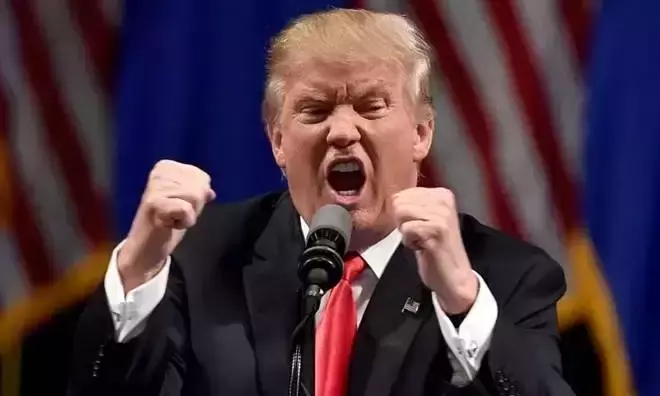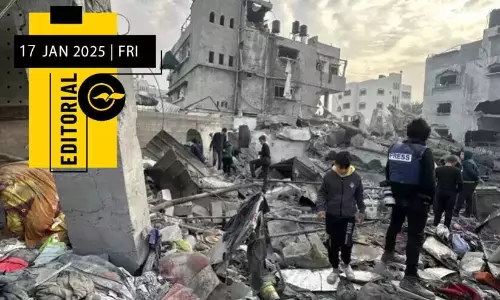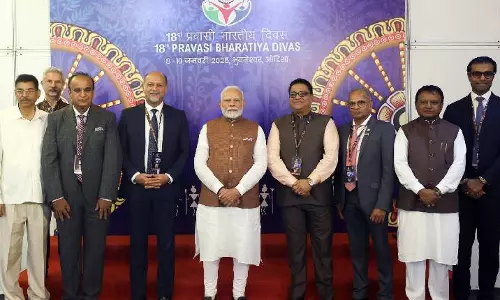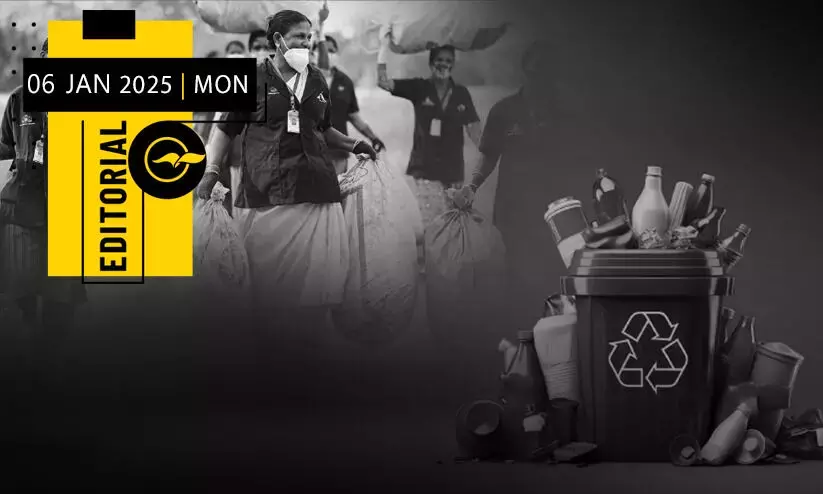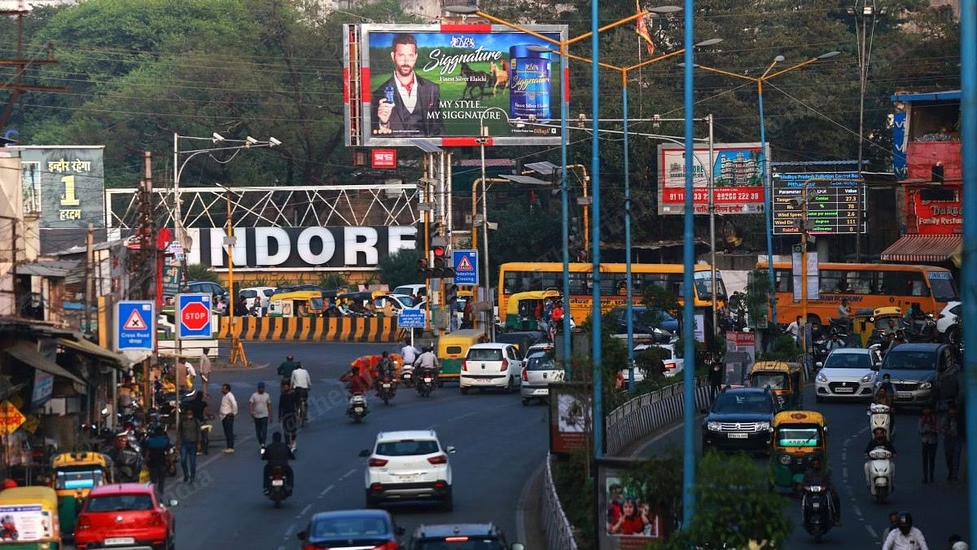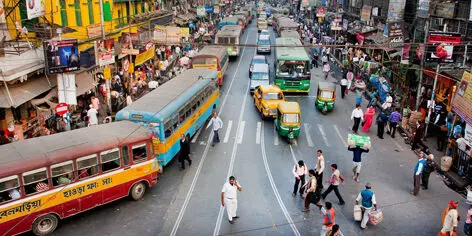
May clean Kerala become reality
text_fieldsKerala is observing ‘Anti-Littering Week’. The week is being observed from January 1 to 7, with the aim of creating public awareness, training and campaigning. With a wide range of programmes formulated by the government, it is part of a plan to change the public uncleanness that has become the norm in the state today. Kerala, which excels in many areas, is at a primitive level in terms of public cleanliness. It is not surprising that tourists feel that the state is a big garbage dump. This situation is due to habit rather than ignorance. For a society that has become accustomed to throwing its own garbage into other people's land or on the roadside, awareness is only the beginning. This means that the State Local Self Government Department's observance of the week is only the beginning of a continuous and ongoing drive. The minister has also made it clear that this is just the beginning. Needless to say, the active participation of the people is essential. It is clear that the energy generated by the week-long schedule that ends tomorrow will not be enough to achieve the goal of a litter-free new Kerala by March 30. The fact that this goal, which should be fulfilled as a popular movement cutting across political and social divides, is being diverted from public attention due to various unnecessary controversies is also a setback.
It goes without saying that the lack of vigilance of the rulers also plays a role in creating unnecessary controversies and losing the strength and sense of purpose of a good popular movement. The ‘Litter-Free Kerala’ project, which was supposed to become a major popular initiative with the observance of the week, should not be limited to just one of the many announcements of the government. Minister MB Rajesh pointed out that while scientific waste management is making great progress, the ‘trash-throwing habit’ continues among the people, which is the heart of the problem. The project will be successful if the necessary awareness, public facilities, government support, and social participation are ensured to change that habit. The ministry has prepared a blueprint for systematic work under the supervision of local self-government institutions, with the participation of residents’ associations and organizations. During the week-long observance, many 'waste bins' were installed to deposit waste. Local squads were assigned to ensure that they were used properly and surveillance cameras were installed. A system was also created to ensure that waste disposal in homes was done properly. Green policies were strengthened in educational institutions. Commercial establishments were also brought into the circle of the effort. Even after the week of observance that saw so many measures, it cannot be said that the path to a ‘clean Kerala’ has been opened in a way that is tangible. There has still been no visible change in habits. Enforcement squads are finding a large number of banned plastic items; more are still being used. While the government admits that its efforts are in the right direction, there is a clear inadequacy in systems and participation.
It is expected that the shortcomings will be filled in the coming weeks. The clean Kerala drive should not end on January 7 or March 30. The program of rewarding those who send videos of garbage dumping and fines for the guilty was announced five years ago. It was issued as an order a year ago. It is to be assumed that this did not have the desired effect. The main problem is the lack of continuity. The lessons learned from the week will be helpful for future long-term activities. One cannot sat that the idea has not been drilled into the the minds of people in Kerala that the practice of throwing liquor bottles on the roadside, dumping garbage in public places, and dumping plastic waste in streams and rivers should be changed. The important thing is to carry out sanitation efforts more vigorously, with greater participation, and more widely, and to ensure their sustainability. It would be good if we could create model areas in each district and show examples that the people can experience and inspire them. Above all, the government should take up public sanitation as a priority item for the entire state of Kerala. The ministries of education and health should also take the initiative in this regard. If we can change the situation of Kerala being an open garbage dump and train the people accordingly, it will be a historic achievement.






